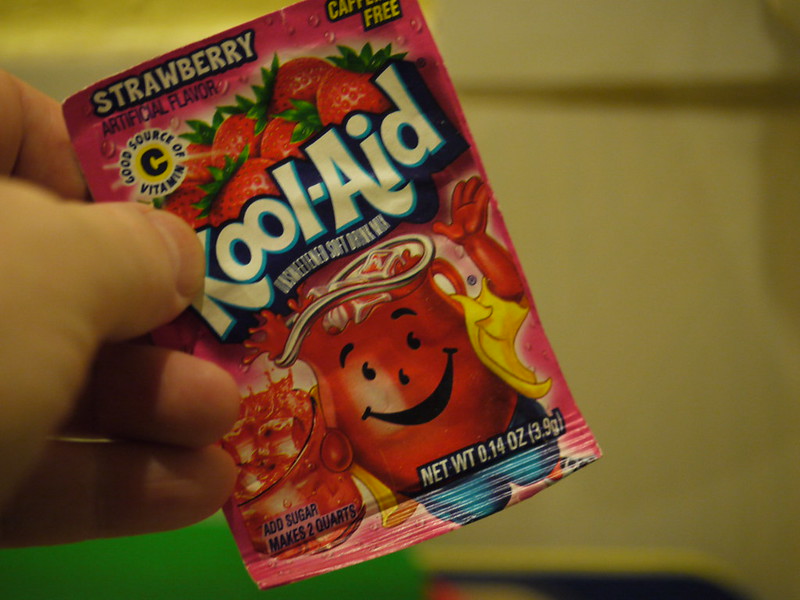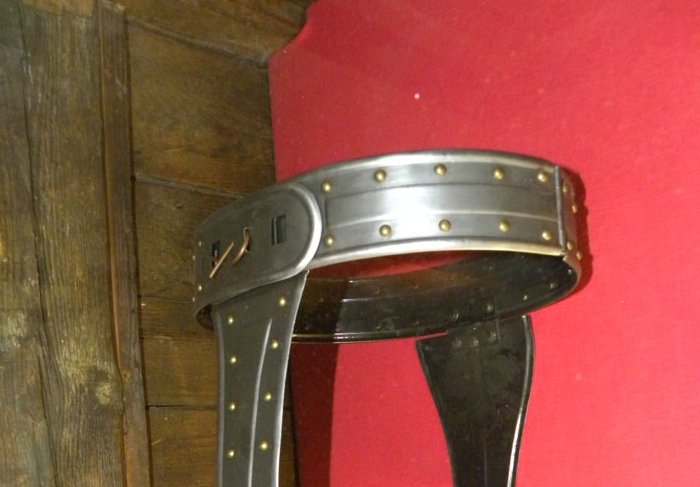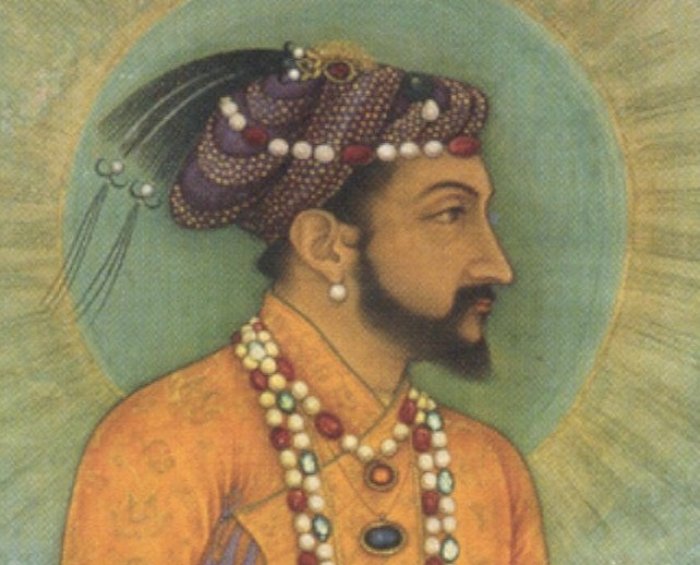Common Misconceptions
It's surprisingly easy for something that's completely untrue to enter the common knowledge. Whether due to a misunderstanding or, just as often, a flat-out lie, here are some common misconceptions that persist to this day.
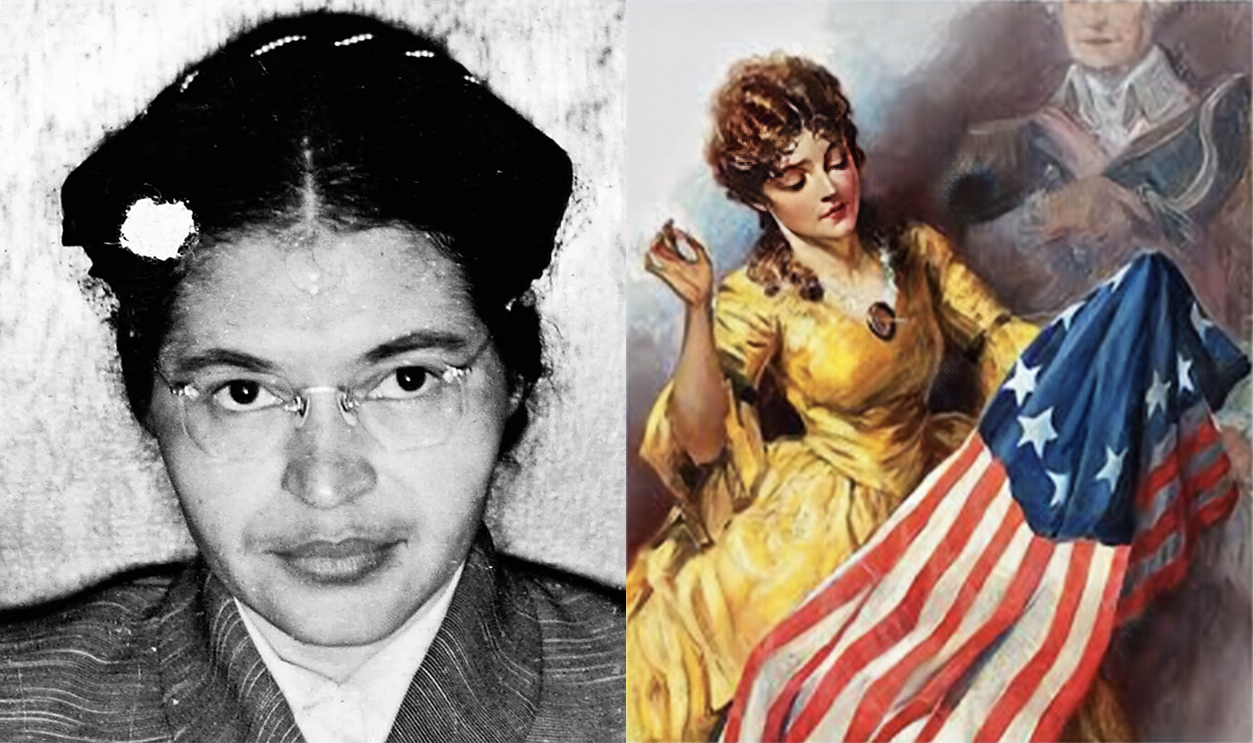
The Emancipation Proclamation Didn't End Slavery
The Emancipation Proclamation only made banned slavery in the 10 states that were still in rebellion in 1863. The proclamation did nothing for the hundreds of thousands of slaves in states like Missouri, Kentucky, Maryland, and Delaware that hadn't seceded from the union.
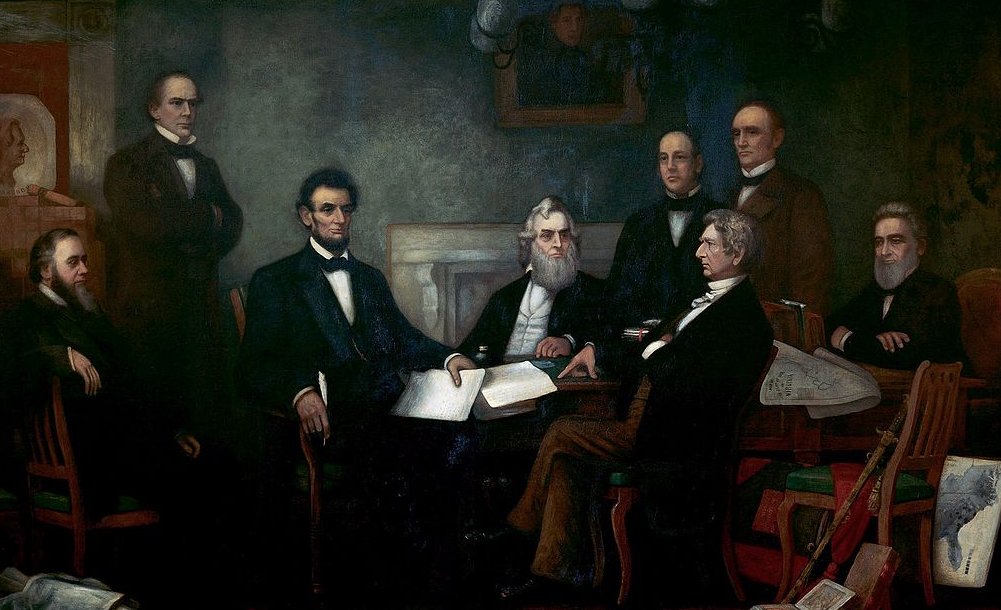 Francis Bicknell Carpenter, Wikimedia Commons
Francis Bicknell Carpenter, Wikimedia Commons
They Didn't Wear Cowboy Hats In The Wild West
You'd definitely see plenty of bowler and derby hats in the Wild West, but the "traditional" cowboy hat was a later invention. The popularity of the modern "Cowboy Hat" goes back to Stetson's "Boss of the Plains" model, which they heavily marketed after 1865—but which wouldn't get the traditional dent in the top until much later.
 Unknown Author, Wikimedia Commons
Unknown Author, Wikimedia Commons
A Cow Didn't Start The Great Chicago Fire
The story that Mrs. O'Leary's cow kicked over a lantern, causing the Great Chicago Fire...was just flat out made up by a newspaper reporter. Doesn't stop people from believing the story to this day.
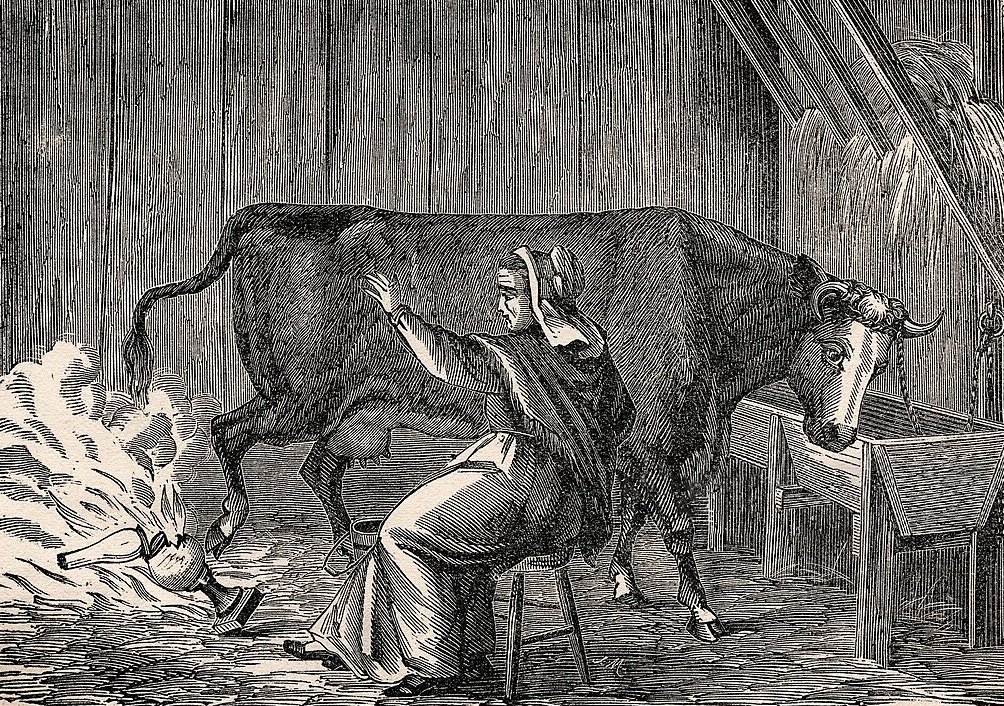 Unknown Author, Wikimedia Commons
Unknown Author, Wikimedia Commons
Typhoid Mary Wasn't Doing It On Purpose
Typhoid Mary has been villainized as a psychotic cook who purposely infected over 100 people with the disease, but Mary notably did not believe that she carried Typhoid.
She was a textbook asymptomatic carrier, so she had no way of knowing she carried Typhoid, and this was long before epidemiology was well-understood. She did spread the disease—but she wasn't a monster.
 Unknown Author, Wikimedia Commons
Unknown Author, Wikimedia Commons
People Didn't Jump From Buildings On Black Tuesday
Stories of men jumping out of windows when Wall Street collapsed in 1929 are vivid in the popular imagination—but there isn't actually any record of it happening. Blame Winston Churchill for the confusion.
It's Churchill's Fault
What really happened is that Winston Churchill, who happened to be staying in the Savoy-Plaza hotel at the time, saw a man jump from above his floor and assumed it was the crash. In reality, the man was a German tourist and the fall was accidental.
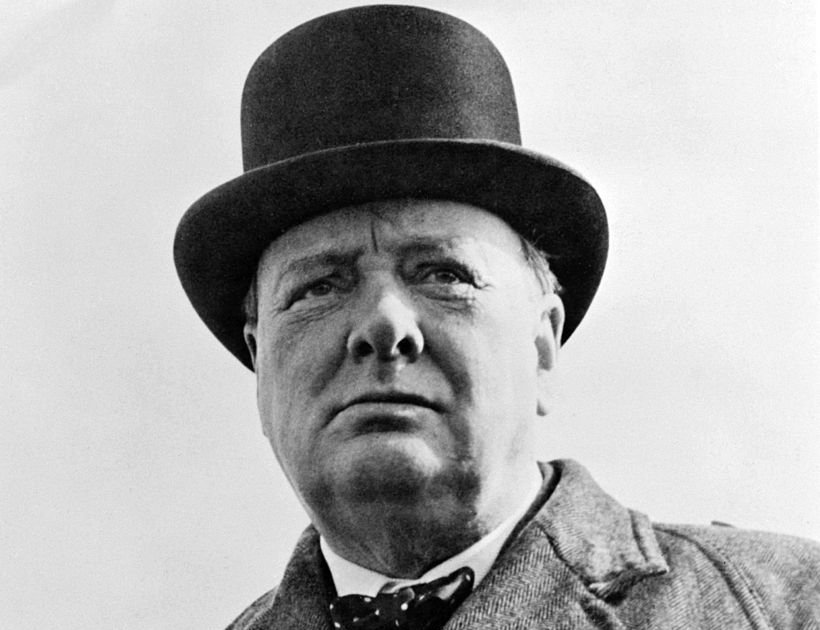 United Nations Information Office, Wikimedia Commons
United Nations Information Office, Wikimedia Commons
The War Of The Worlds Didn't Cause A Panic
The story that Orson Welles's radio play of the War of the Worlds convinced Americans that Martians really were invading is mostly a fabrication. First, not that many people actually even heard the broadcast, but the stories of mass-panic were spread by newspapers who were trying to discredit this new-fangled competitor "radio".
 Acme News Photos, Wikimedia Commons
Acme News Photos, Wikimedia Commons
The Apollo Program Was Extremely Unpopular
In hindsight, it's easy to think of all of America uniting over progress and exploration, culminating in the triumphant moon landing of 1969. But it definitely wasn't like that.
The highest that public approval for the Apollo program reached was 51%—and that was immediately after the moon landing. Even then people were still on the fence.
They Didn't Drink Kool-Aid At Jonestown
"Drink the Kool-Aid" is a saying thanks to Jonestown—but they weren't drinking Kool-Aid. They were drinking Flavor-Aid.
There Was No Curse On King Tut's Tomb
The discovery of Pharaoh Tutankhamun's tomb was one of the biggest moments in the history of Egyptology. Soon, rumors began to spread that the tomb was inscribed with a curse, explaining all the eery coincidences that happened to the project.
Nope. The curse was completely made up by tabloid journalists.
 Harry Burton, Wikimedia Commons
Harry Burton, Wikimedia Commons
Vikings Didn't Drink Out Of Skulls
It's a commonly held believe that Vikings drank out of the skulls of their enemies, and this belief actually goes back centuries thanks to ancient Viking texts that make reference to drinking out of ór bjúgviðum hausa, or "branches of skulls".
But take a guess what "branches of skulls" really means...
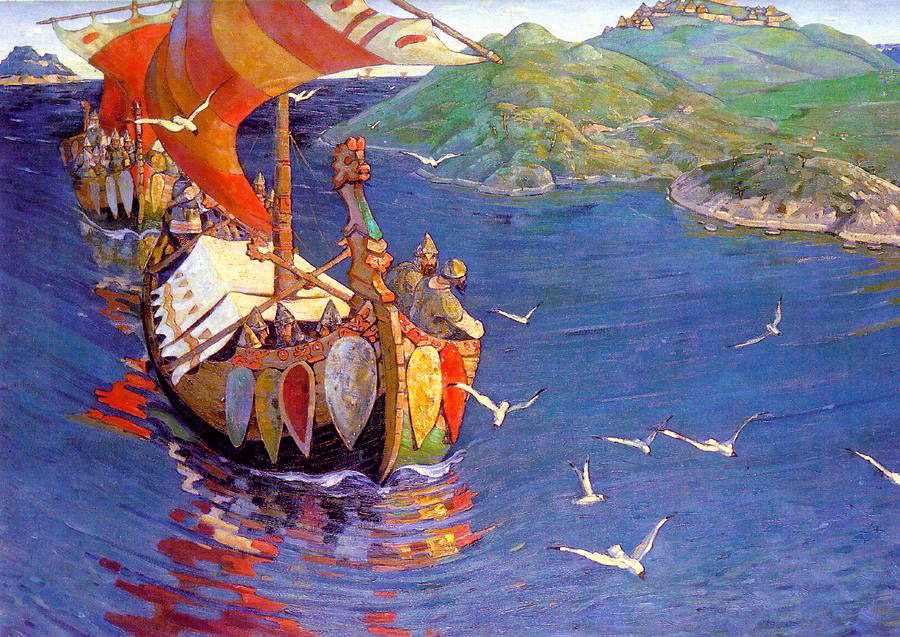 Mararie on Flickr, CC BY-SA 2.0, Wikimedia Commons
Mararie on Flickr, CC BY-SA 2.0, Wikimedia Commons
They Drank Out Of Horns
You ever see an animal with horns or antlers? Almost like...branches...that grow out of the...skull.
Turns out, the Vikings just drank out of hollow horns.
 Mararie, CC BY-SA 2.0, Wikimedia Commons
Mararie, CC BY-SA 2.0, Wikimedia Commons
Napoleon Wasn't Short
Napoleon's listed height is 5 foot, two inches...five French feet. That's five foot seven in regular feet and inches, which was actually taller than the average Frenchman back then.
 Jacques-Louis David, Wikimedia Commons
Jacques-Louis David, Wikimedia Commons
He Didn't Shoot Off The Sphinx's Nose
The story that Napoleon shot off the Great Sphinx's nose during his visit to Egypt is just that: a story. In fact, the nose has been missing since at least the 10th century.
 Emőke Dénes, CC BY-SA 4.0, Wikimedia Commons
Emőke Dénes, CC BY-SA 4.0, Wikimedia Commons
Chastity Belts Are A Modern Invention
The iron-clad chastity belt of the Middle Ages is almost certainly a completely modern invention. Similar to the Iron Maiden, they are something that people in the 19th century invented because they assumed people used them in the Middle Ages.
"Here There Be Dragons" Wasn't Really A Thing
It's a commonly held believe that medieval maps frequently used the phrase "here be dragons" in uncharted areas, but there are only two known maps that include the phrase—and both of them put it in the same location, just off the coast of Southeast Asia.
Maybe there really are dragons there?
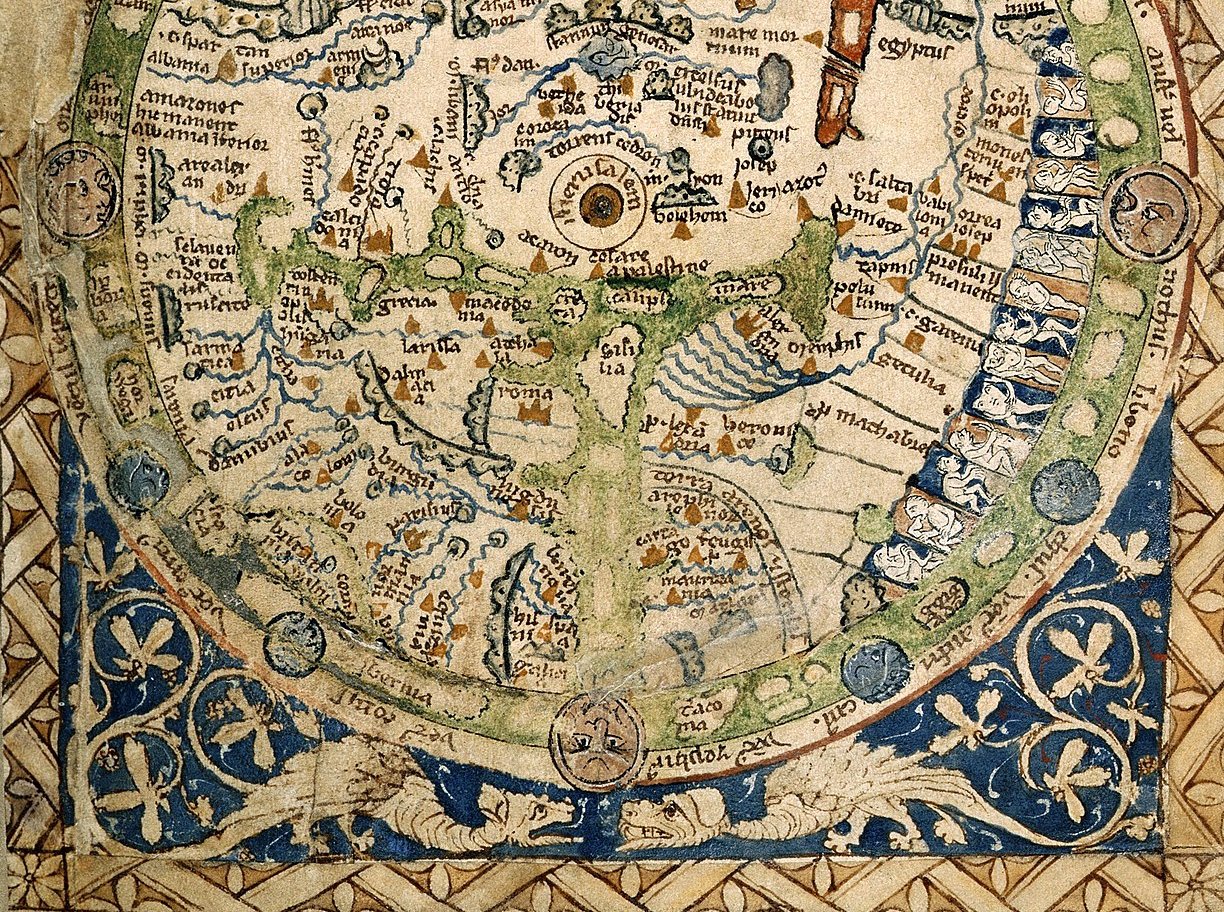 Unknown Author, Wikimedia Commons
Unknown Author, Wikimedia Commons
No One Thought Columbus Was Going To Sail Off The Edge Of The Earth
You might have been told that people thought Christopher Columbus would sail off the edge of the Earth when he tried to travel to India the wrong way around. That wasn't actually his problem—but he did have serious problems.
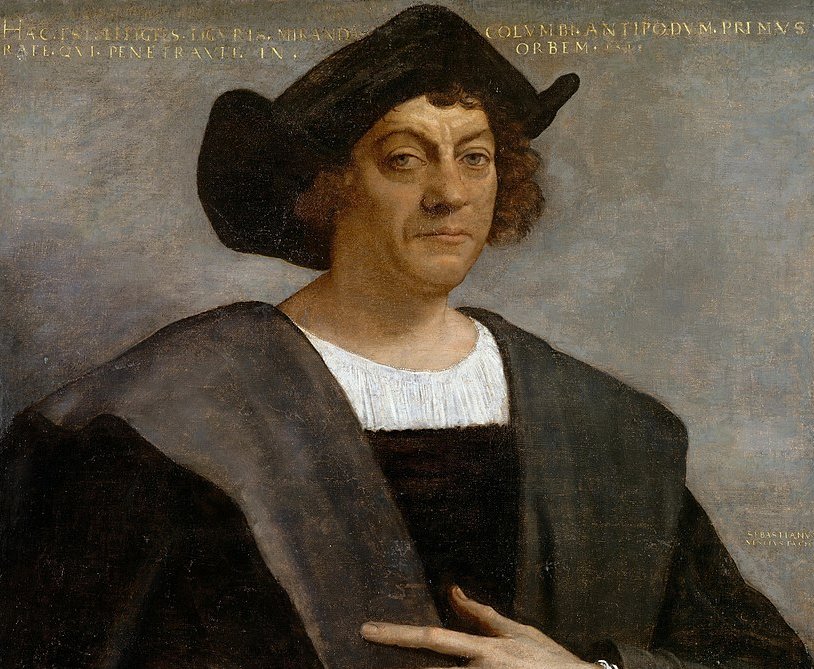 Sebastiano del Piombo, Wikimedia Commons
Sebastiano del Piombo, Wikimedia Commons
They Knew Better Than Him
Rather, many people in fact rightfully pointed out that Columbus had vastly underestimated the circumference of the Earth, and believed he would be underprepared (he was).
 Ridolfo del Ghirlandaio, Wikimedia Commons
Ridolfo del Ghirlandaio, Wikimedia Commons
Blame Washington Irving
The belief in North America that flat-earth belief hampered Columbus's ability to raise money for his voyage goes back to legendary American writer Washington Irving's A History of the Life and Voyages of Christopher Columbus, which was more concerned with mythmaking than history.
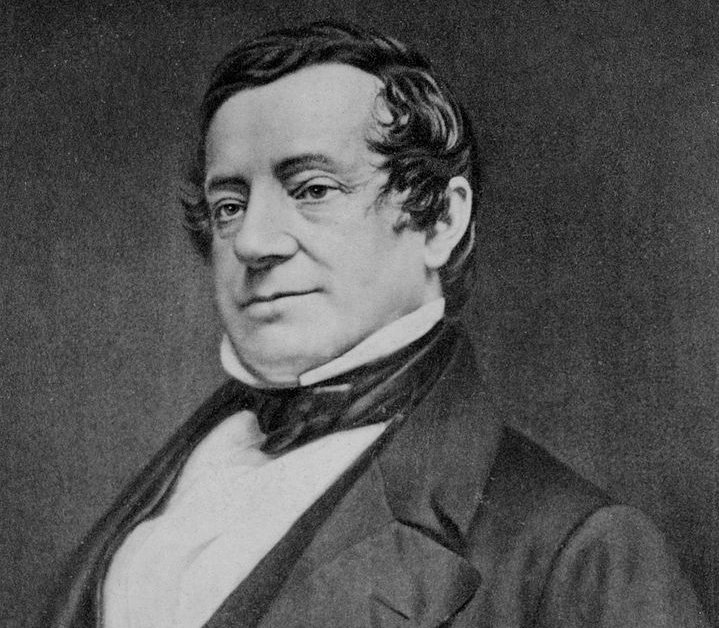 Unknown Author, Wikimedia Commons
Unknown Author, Wikimedia Commons
Columbus Wasn't The First European In North America
Leif Erikson visited and even colonized North America hundreds of years before Christopher Columbus set sail. For years, Europeans assumed that stories of distant settlements in Norse sagas were myth—until the ruins at L'Anse aux Meadows in Newfoundland prove them right.
 Dylan Kereluk, CC BY 2.0, Wikimedia Commons
Dylan Kereluk, CC BY 2.0, Wikimedia Commons
The Aztecs Didn't Think The Spanish Were Gods
People still believe today that the Aztecs thought that Hernán Cortés and his Conquistadors were gods when they arrived in Mexico.
Turns out, that idea was just completely made up...by a Spanish writer...who never even went to Mexico.
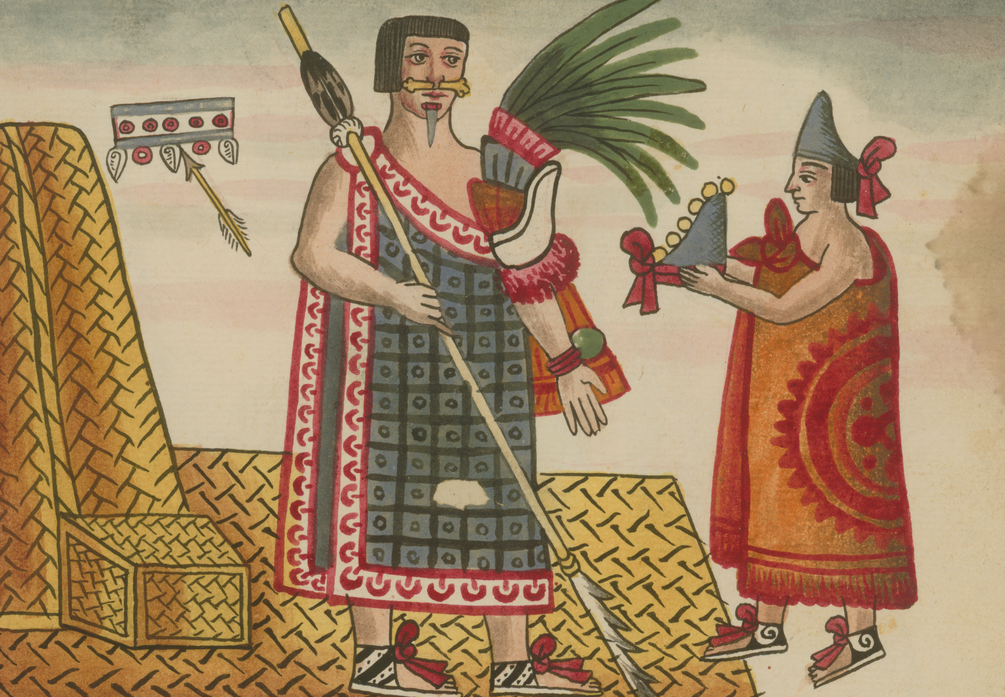 Juan de Tovar, Wikimedia Commons
Juan de Tovar, Wikimedia Commons
The Pilgrims Didn't Look Like You Think
The image of the first settlers in America wearing all black with tall, buckled hats is very far from historically accurate. Rather, you should picture someone putting on Shakespeare—these early settlers dressed in a fashion typical to the English in the Elizabethan era.
 Robert Walter Weir, Public domain, via Wikimedia Commons
Robert Walter Weir, Public domain, via Wikimedia Commons
The Builder Of The Taj Mahal Didn't Cut Off 40,000 Hands
You might have heard that Shah Jahan, the emperor of the Indian Mughal Empire had the hands cut off of all 40,000 workers who built the Taj Mahal, so that no one could ever build another monument as beautiful.
Sounds fake—because it is fake. That story, while romantic in an incredibly disturbing way, was made up in the 1960s.
An Apple Didn't Fall On Isaac Newton's Head
The idea that Isaac Newton's understanding of gravity came after an apple fell on his head is just a pure invention. He did write to a friend that his ideas were "occasioned by the fall of an apple"—but the apple hitting him on the head was just completely made up.
It's a nice story, so obviously it caught on—but it's made up.
 Godfrey Kneller, Wikimedia Commons
Godfrey Kneller, Wikimedia Commons
Marie Antoinette Never Said "Let Them Eat Cake"
Marie Antoinette just never said "Let Them Eat Cake," plain and simple. The phrase first appeared in Rousseau's Confessions...that came out when Marie Antoinette was nine years old.
And guess what? The book doesn't even attribute it to her. But never let the truth get in the way of a good story.
 Joseph Kranzinger, Wikimedia Commons
Joseph Kranzinger, Wikimedia Commons
George Washington Didn't Have Wooden Teeth
No, the first US president didn't have wooden dentures—but his dentures were way cooler than that. His real dentures were made of lead, gold, hippopotamus ivory (among other animals).
 Gilbert Stuart, Wikimedia Commons
Gilbert Stuart, Wikimedia Commons
They Would Have Looked Pretty Wooden
There's a chance that, since ivory teeth tended to stain, that they got so brown people just assumed they were wood.
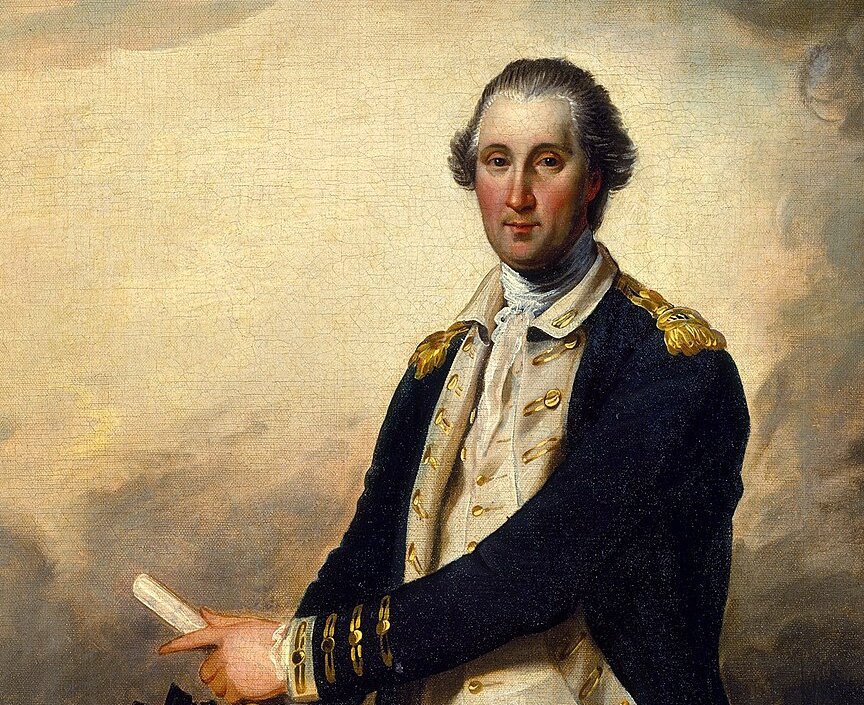 John Trumbull, Wikimedia Commons
John Trumbull, Wikimedia Commons
They Didn't Sign The Declaration Of Independence On July 4
The Second Continental Congress voted to declare independence on July 2, approved the final language of their declaration on July 4th, and began distributing the document later that day, but the actual signing of the Declaration by the Founding Fathers didn't actually happen until August 2nd.
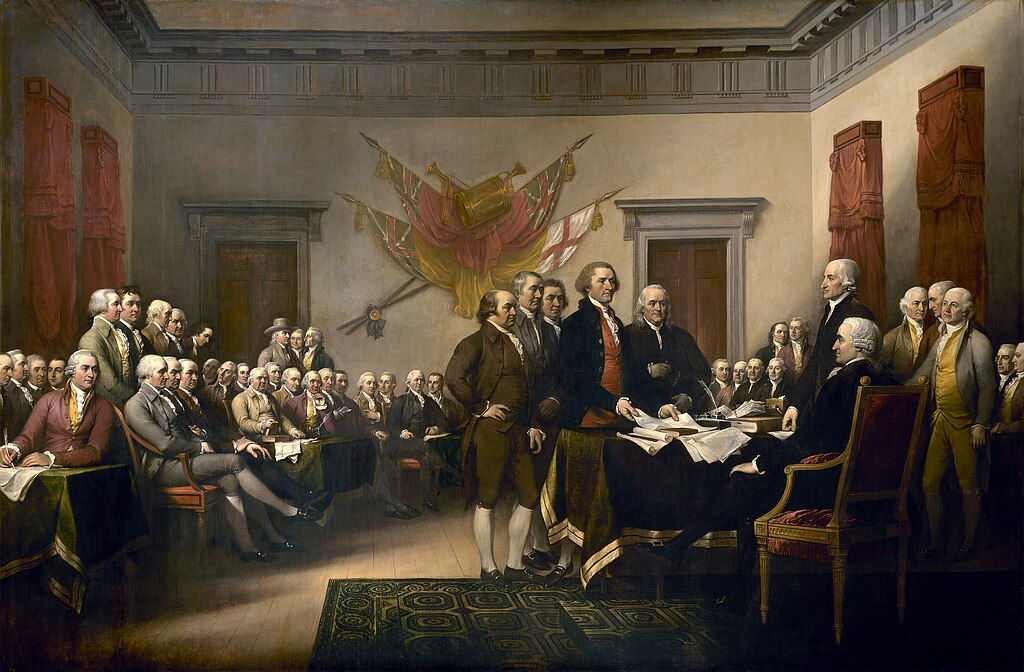 John Trumbull, Wikimedia Commons
John Trumbull, Wikimedia Commons
Benjamin Franklin Didn't Want The Turkey Over The Bald Eagle
It's a commonly held belief the Benjamin Franklin tried to have the national symbol for the United States be the turkey instead of the bald eagle. Fun story, not true.
 Joseph-Siffred Duplessis, Wikimedia Commons
Joseph-Siffred Duplessis, Wikimedia Commons
He Wanted Moses
The grain of truth? He did prefer the turkey to the eagle, but what really happened was he tried to have the image of the eagle on the seal of the Declaration of Independence replaced with an image of...Moses.
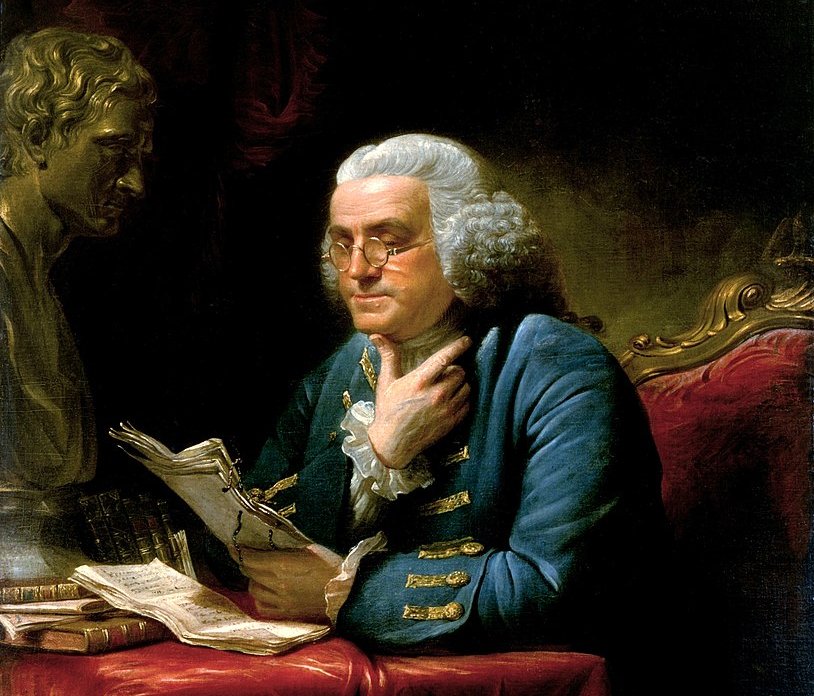 David Martin, Wikimedia Commons
David Martin, Wikimedia Commons
Einstein Didn't Fail Math Class
It's a widely told story that Albert Einstein, one of the greatest geniuses in history, did not fail math class in school. In fact, he had mastered differential and integral calculus before turning 15.
The confusion likely stemmed from the fact that he failed the entrance exam to the Swiss Federal Polytechnic School. But I'd like to note: He was two years younger than the other entrants, and he aced the mathematics section.
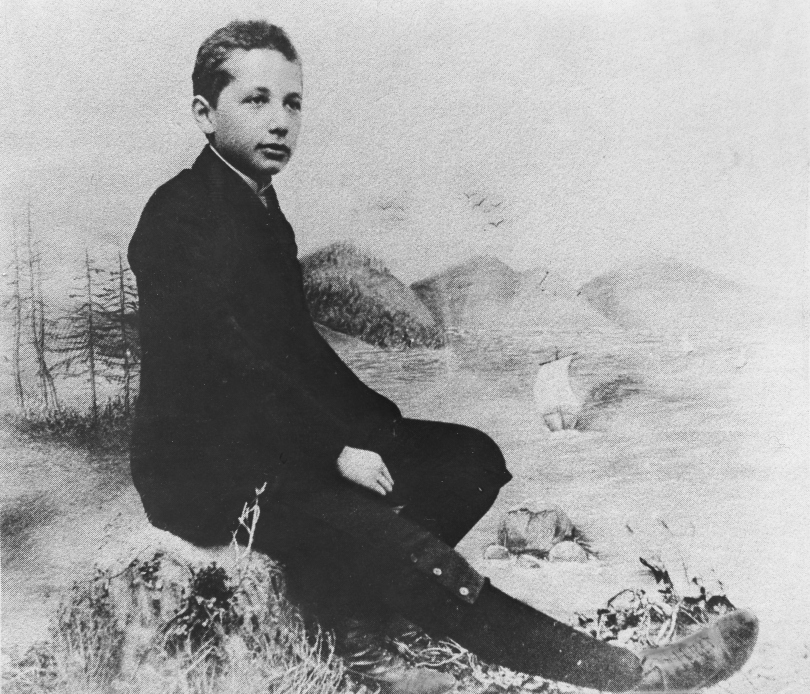 Unknown Author, Wikimedia Commons
Unknown Author, Wikimedia Commons
Mussolini Didn't Make The Trains Run On Time
Not only was most of the repair work on Italian infrastructure done before Mussolini's fascist government took control, but the trains didn't even really run on time. The accuracy of the Italian timetable was propaganda, not reality.
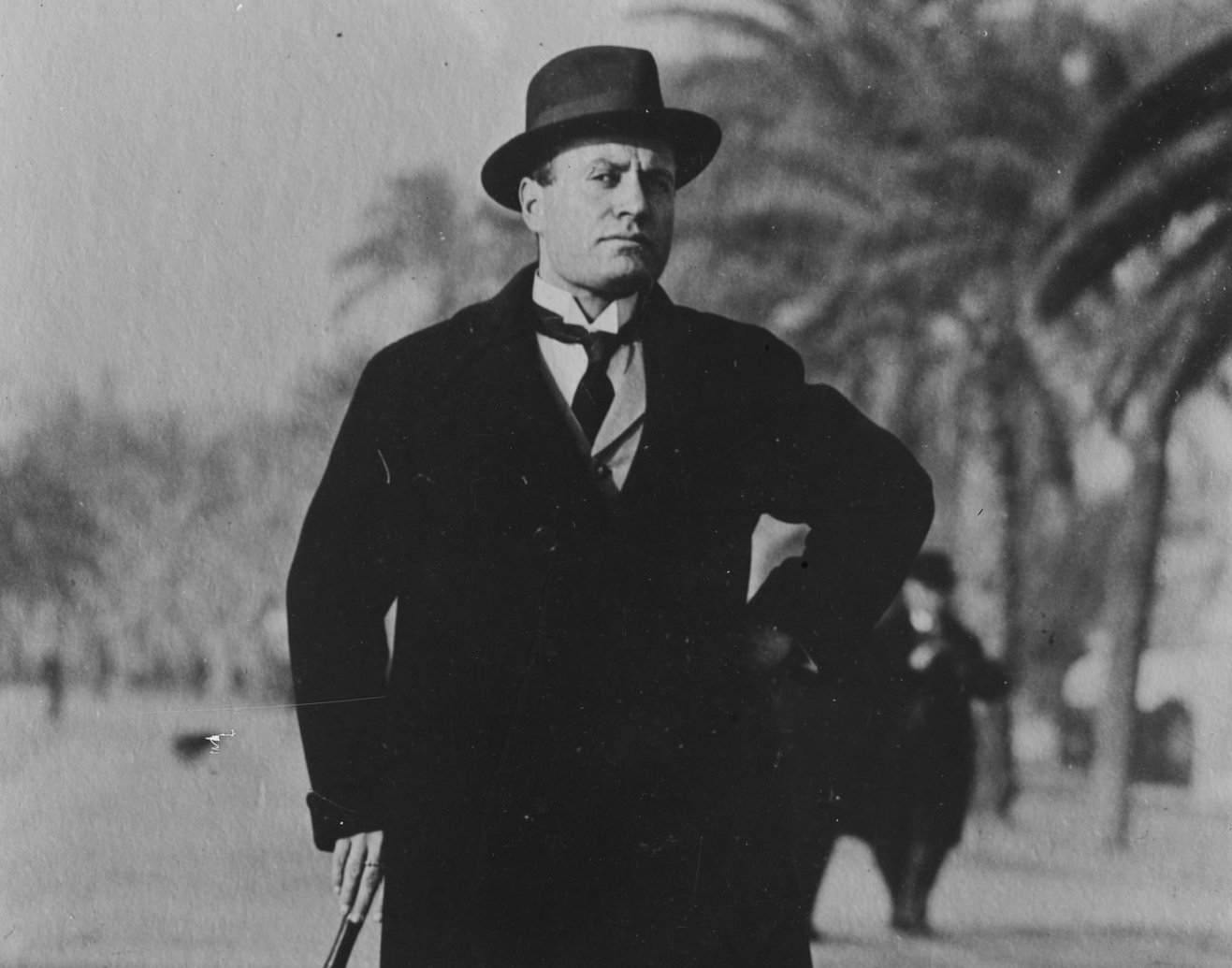 Bain News Service, Wikimedia Commons
Bain News Service, Wikimedia Commons
Betsy Ross Didn't Make The Flag
What's the only thing you know about Betsy Ross? That she designed the Betsy Ross Flag, the second official flag of the United States. The only problem? There is exactly 0 historical evidence to this claim...until her grandson wrote about it almost 40 years after her lifetime.
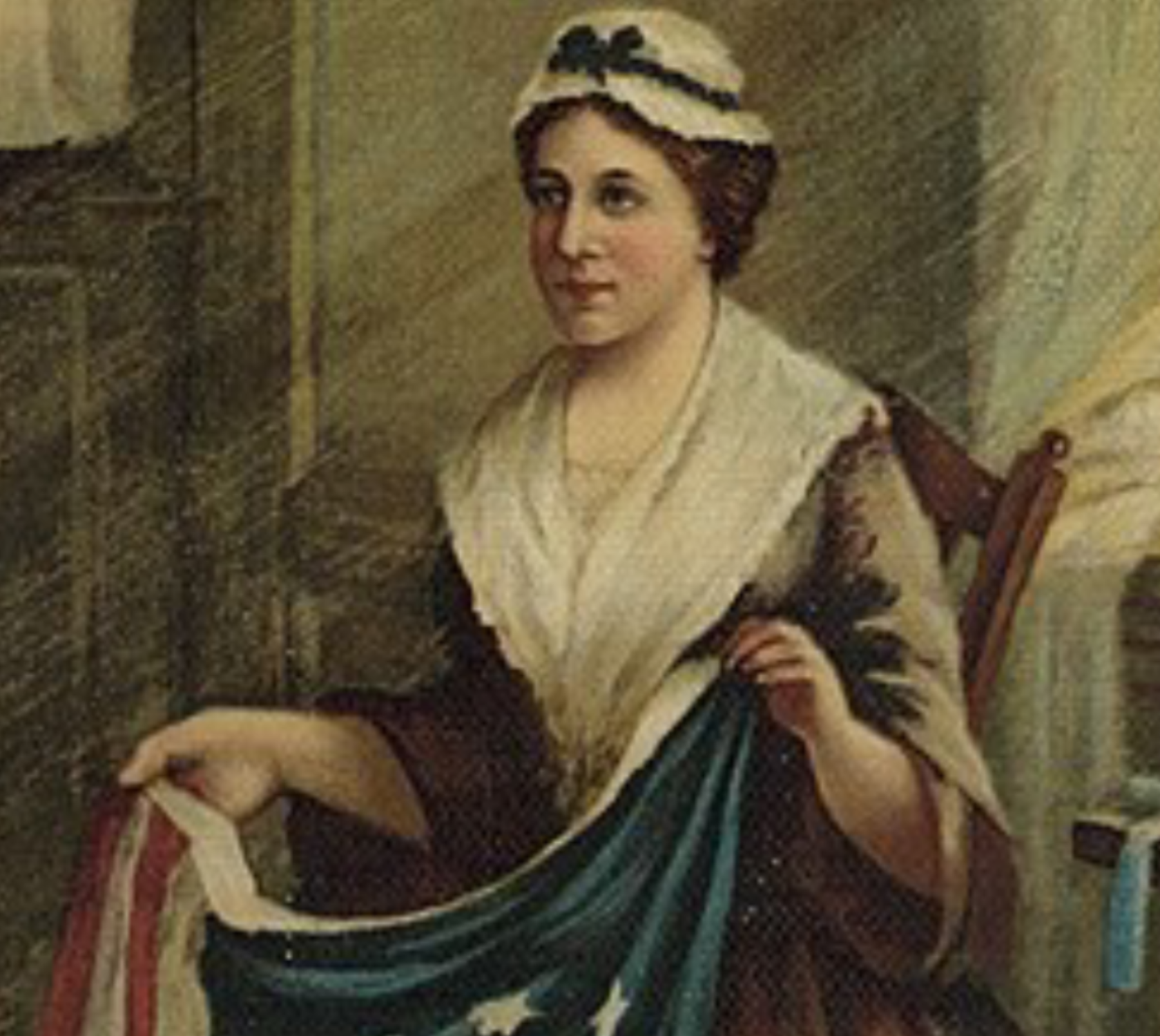 H.A. Thomas & Wylie, Wikimedia Commons
H.A. Thomas & Wylie, Wikimedia Commons
Rosa Parks Wasn't Even Sitting In The White Section
Rosa Parks is a Civil Rights legend, but most people misremember her story. Buses were segregated in Alabama at the time, and Parks wasn't making a stand by sitting in the white section, like many people tend to think.
Rather, the white section at the front was full. Parks was sitting in the Black section, the bus driver tried to make her give up her seat to a white passenger, and she refused, sparking the Montgomery bus boycott.
No One Spat On Vietnam Vets
Vietnam remains one of the most controversial moments in American history—but the stories definitely play it up. While there was a very passionate and active anti-war movement Stateside, there isn't actually a single confirmed case of protestors spitting on veterans when they returned home.
Turns out: Rambo isn't real.



